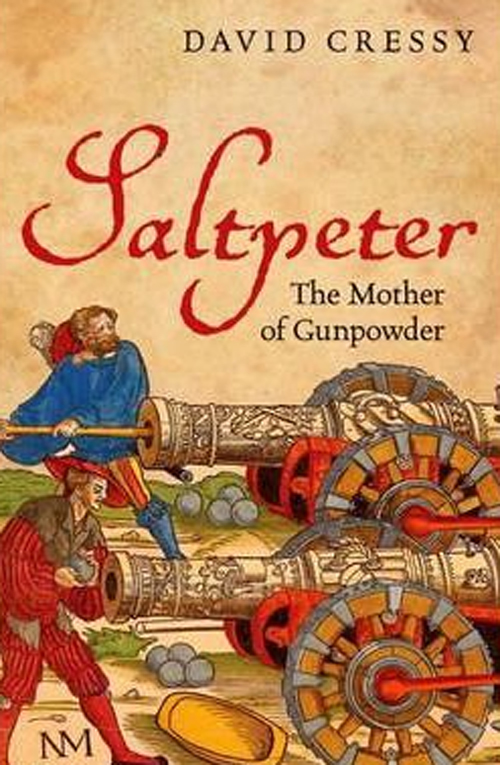Saltpeter: The Mother of Gunpowder
Book Review

Cressy, David - (Oxford University Press), 2013
237 pp., £16.99 hard, ISBN 978-0-19-969575-1
Today, government is concerned by the question of fuel security (or rather insecurity) as access to gas resources moves away from the dwindling North Sea deposits to supplies brought in from across Europe. This helps to explain why the exploitation of shale gas reserves is seen as so important to Britain's future development. Gunpowder plays a central role in the national psyche especially in relation to the Gunpowder Plot and yet the ‘inestimable treasure' relied on saltpeter, an elusive and, until the eighteenth century, limited resource. In late 1861, within hours of learning of the Trent affair Lord John Russell moved to prohibit the export of military material to the United States. British India was the main source of the saltpeter used in Union gunpowder. National security depended on control of this organic material, derived from soil enriched with dung and urine, acting the ‘mother' of gunpowder without which no musket or cannon could function. Until the late-nineteenth century when chemical explosives were developed, the security of early modern and modern states was dependent on having access to saltpeter. Until huge deposits were found in India, the quest for it in Tudor and Stuart England proved ‘vexatious' as the hated ‘saltpetermen' aggressively sought deposits in homes, barns and even churches grossly intruding on people's lives. Not surprisingly, it proved to be one of the grievances in the years leading up to the mid-seventeenth century British Civil Wars. The import of huge amounts of saltpeter from India relieved this social and political pressure and Cressy argues played a major role in establishing Britain as a global imperial power in the eighteenth century. By contrast, the ancien regime states of Europe and the government of republican America were vulnerable and had to find alternative sources of this vital resource.
The first five chapters of this relatively short book examines the ways in which the early modern English state sought ‘infinite security' by finding a substantial and reliable source of saltpeter and the political, social and economic consequences of this quest. It then considers the ‘saltpeter revolution' linked to the Indian deposits and the ways in which it aided the development of Britain as a global power. The book contains excellent illustrations showing how saltpeter was produced and the military uses that were made of it. There are substantial notes that show the extent of David Cressy's research into the issue and a detailed bibliography. This is a fascinating and highly readable study of the ‘weird and wonderful tale of saltpeter' and its place as the bedrock of national security from the Tudor to Victorian periods. Highly recommended.

